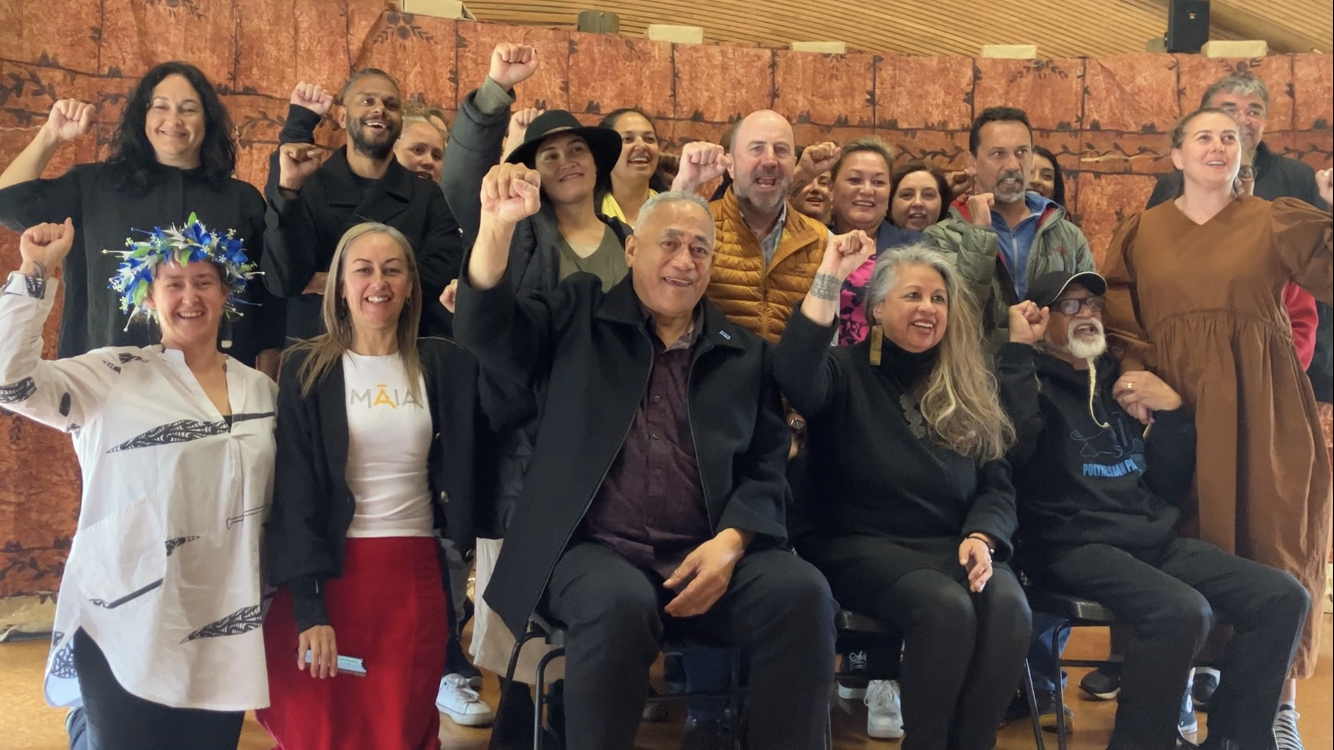Fellows travel to Aotearoa for intercultural exchange focused on Indigenous rights, sovereignty and treaties
AFSE meeting with original members of the Polynesian Panthers at Te Fale Pasifika
After a week of intercultural exchange travelling in Aotearoa hosted by the University of Auckland (Waipapa Taumata Rau), 2022 Cohort Fellows, AFSE Pou (Elder in Residence) Dr Jackie Huggins and staff are heading back to their home communities.
The focus for this latest cohort of Indigenous leaders and change-makers was on powerful encounters: to compare and contrast Indigenous rights and sovereignty in Aotearoa and Australia with a particular focus on treaties. The trip is part of the Fellows’ foundation year, during which they complete either a Master’s or Graduate Certificate in Social Change Leadership at the University of Melbourne.
“We are still learning what treaty means here in New Zealand and we are in a constant war of manoeuvre and repositioning ourselves in relationship to the colonising power.”
The week included being welcomed onto Makaurau Marae, sharing culture and tino rangatiratanga (self-determination), learning about the history of the Ihumatao community and their struggles for land rights, and meeting original members of the Polynesian Panthers revolutionary social justice movement. The AFSE group also visited Ngāti Whātua Ōrākei at Bastion Point and heard the stories of Ngāti Whātua and Whai Māia resilience and success.
Fireside chats – with Professor Linda Tuhiwai Smith, Distinguished Professor Graham Hingangaroa Smith and guest speakers from the University of Auckland, Dr Aroha Harris and Associate Professor Claire Charters – gave Fellows an opportunity to interrogate and identify pertinent issues when negotiating a treaty or making an agreement between Indigenous peoples and the state or Crown, both in historical and contemporary contexts.
AFSE being welcomed onto Makaurau Marae
“We are still learning what treaty means here in New Zealand and we are in a constant war of manoeuvre and repositioning ourselves in relationship to the colonising power which, for the most part, tries to prevail over the top of us,” said Distinguished Professor Graham Hingangaroa Smith addressing Fellows during the fireside chat. “The proof of what we do is to be seen in the outcomes."
For many Aboriginal and Torres Strait Islander Fellows, the opportunity to learn and reflect upon the complex experience of treaty for Māori sovereignty and communities was timely, as contemporary Australian treaty developments impact their work and communities.
“This past week was one of the most culturally enriching weeks of my life. Māori girrwaa (group) of AFSE and the waaru-biin (people) we met in Aotearoa carried us on their wajaarr/whenua (land) with so much hospitality, love and care. I will be forever grateful,” said 2022 Cohort Fellow and Gumbaynggirr man, Christian Lugnan.
“It was an emotional week to learn some of their story. It is similar to ours, in some respects, and also very different. Their continuity of sharing and knowing their history and culture was astounding. This was evident through all generations we met. Their story telling of place is phenomenal. We have lost so much but we are also learning so much from our ongoing revitalisation and reclamation journey. Our Māori cousins have got our backs and we’ve got theirs.”


